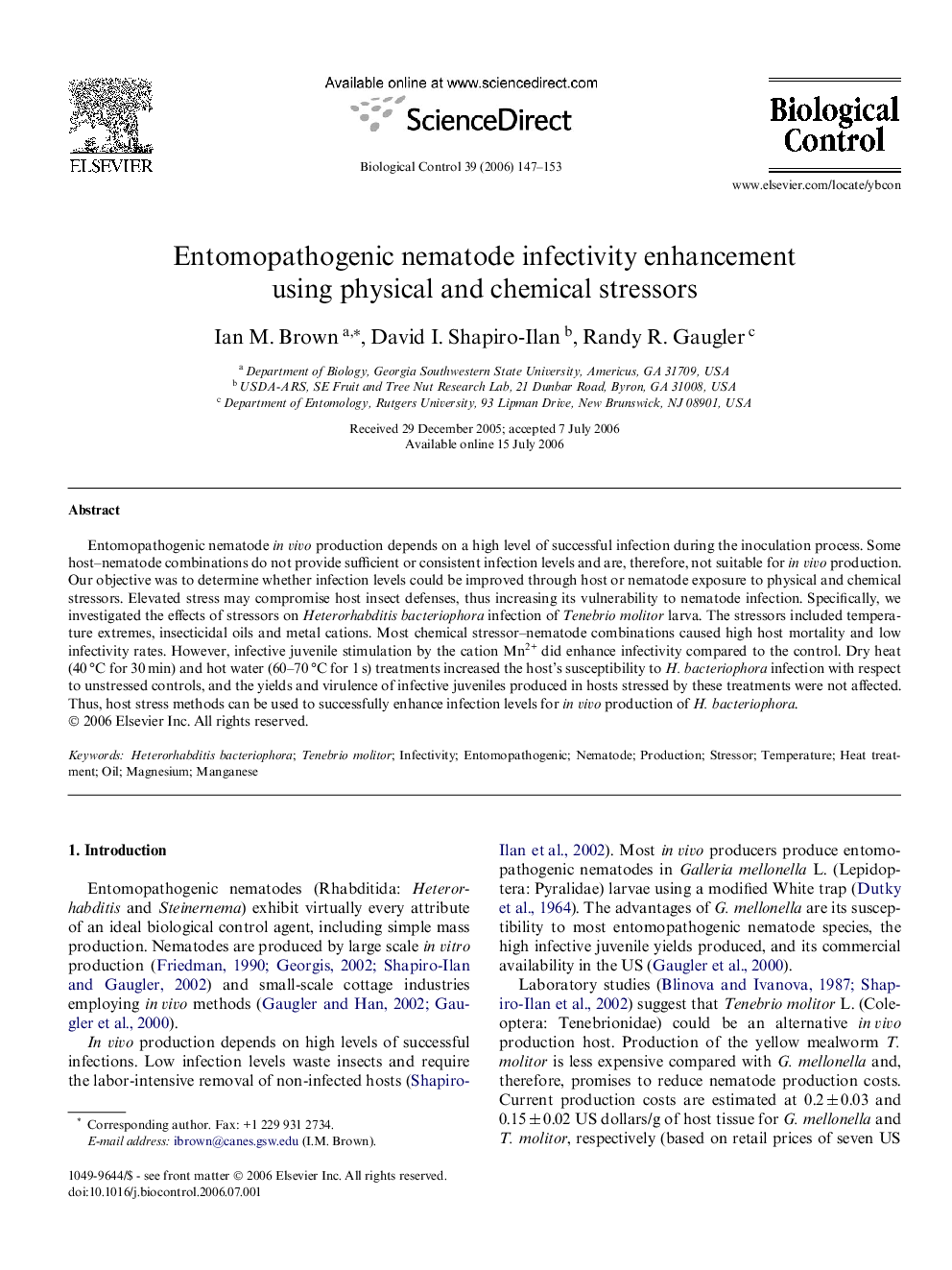| Article ID | Journal | Published Year | Pages | File Type |
|---|---|---|---|---|
| 4505251 | Biological Control | 2006 | 7 Pages |
Entomopathogenic nematode in vivo production depends on a high level of successful infection during the inoculation process. Some host–nematode combinations do not provide sufficient or consistent infection levels and are, therefore, not suitable for in vivo production. Our objective was to determine whether infection levels could be improved through host or nematode exposure to physical and chemical stressors. Elevated stress may compromise host insect defenses, thus increasing its vulnerability to nematode infection. Specifically, we investigated the effects of stressors on Heterorhabditis bacteriophora infection of Tenebrio molitor larva. The stressors included temperature extremes, insecticidal oils and metal cations. Most chemical stressor–nematode combinations caused high host mortality and low infectivity rates. However, infective juvenile stimulation by the cation Mn2+ did enhance infectivity compared to the control. Dry heat (40 °C for 30 min) and hot water (60–70 °C for 1 s) treatments increased the host’s susceptibility to H. bacteriophora infection with respect to unstressed controls, and the yields and virulence of infective juveniles produced in hosts stressed by these treatments were not affected. Thus, host stress methods can be used to successfully enhance infection levels for in vivo production of H. bacteriophora.
